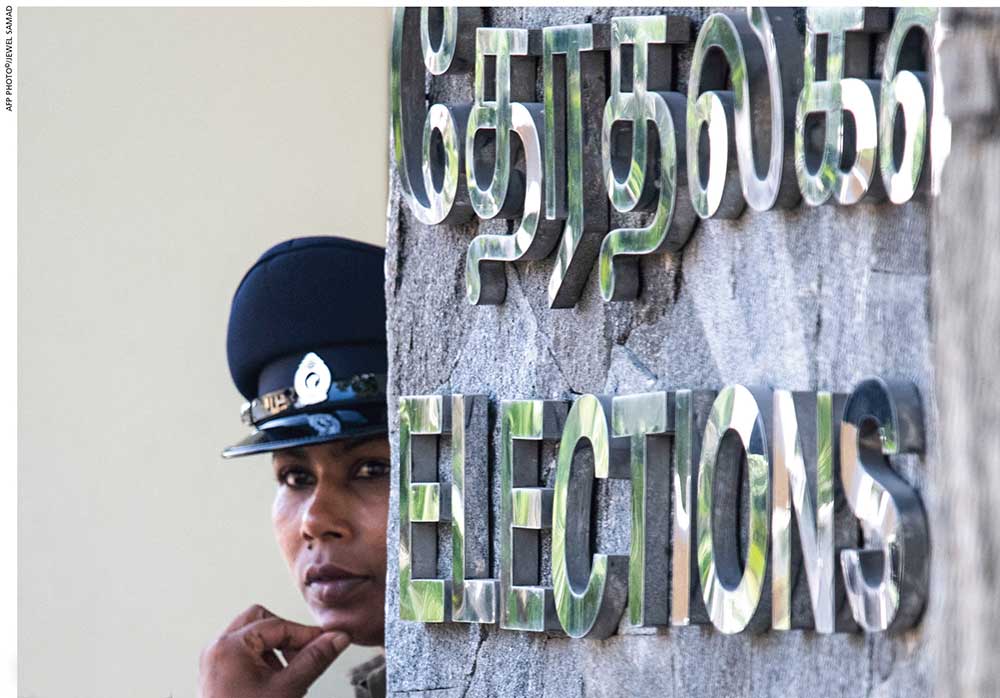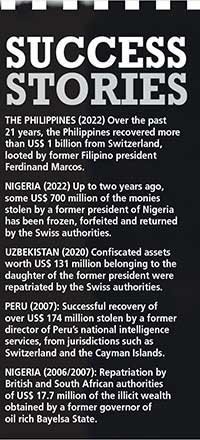STATE OF THE NATION

VIEWPOINTS
TIME TO GO AND CATCH THAT FALLING STAR
Wijith DeChickera would welcome initiatives of the new government that set Sri Lanka on the path towards the recovery of once stolen assets

Now that electors have voted for who will govern them executively, there may be a sense of apathy that often follows the aftermath of poll results. Once customary post-election analyses are done and remnant tensions from exercising the franchise exorcised, the electorate tends to take it easy with a step back into the doldrums… until it is time to vote again.
But with general elections on the campaign road ahead, the polity may rest assured that movers and shakers – to say nothing of inevitable creepy-crawlies in the apparatus of state and government – would neither have rolled up their electoral maps nor put away their political and personal ambitions.
So it behoves the citizenry who vested their sovereignty in a new head of state to remain vigilant, engaged and active.
And while no single individual or small lobby much less than vested interests could contend with the intricate cogs and wheels of our mixed system of government – where executives and legislatures circumvent the division and separation of powers, to confound the public and national interest – the apolitical mass of citizens of Sri Lanka can and must continue to act to hold their elected representatives accountable.
One such civil society based initiative to keep our governors – past, present and future – straight is the Stolen Assets Recovery (StAR) programme, and others like it that seek to repatriate the ill-gotten gains of corrupt politicians, which were allegedly squirrelled away under previous regimes and are now secreted away in anonymous overseas destinations notorious for conspiring in such crimes.
The role that unbiased media could play in such seemingly starry-eyed projects is to keep the hopes and interests of the public alive.
This the press does best by continuing to ask such vital questions as to sustain the momentum against the customary inertia that sets in when the post-election populace is stonewalled by now sanguine executives cosily ensconced in power.
And these questions run to the tune of the following.
How do we propose to recover stolen assets? Will it take an unconscionably long time and come at an unacceptably high cost? Who has to take what action, where and using which methods and modalities?
May we presume to offer a few pointers that would hopefully serve to keep the flame of justice for past crimes burning brighter than ever – despite or maybe even because of the dark times we’ve endured as a nation that is constantly seeking the light in its better moments…
For one, citizens must be cognisant of the fact that Sri Lanka is a signatory to and has committed to being compliant with the United Nations Convention Against Corruption (UNCAC).
Two key principles of UNCAC that could aid us are international cooperation in and mutual legal assistance between sovereign nations in the recovery of their illegally removed assets stashed away in overseas destinations.
And the international element does not preclude national authorities from recovering illegal assets hidden in the land although this could be a time consuming process as a criminal case in Sri Lanka takes an average of 10.2 years to conclude, according to Transparency International (TI).
But identifying, seizing and freezing can be executed under prevalent criminal laws if relevant law enforcement authorities – such as the police and its relevant bureaus, Attorney General’s Department (AG) and Financial Intelligence Unit (FIU) of the Central Bank of Sri Lanka – act in a timely and coordinated manner, especially as the loot could be evacuated abroad rapidly no sooner suspicions are aroused.
For another, there is the daunting prospect that recovering assets smuggled out to foreign countries could take an inordinately long time, and entail lengthy and cumbersome processes. TI notes that on average, international asset recovery takes about the
same time (10 years) to complete as its local counterpart… so societal will as much as political stability are paramount.
The public must be made aware however, that there is a clear and transparent path in such a process – spanning an arc from informal dialogues between origin and destination countries for illegally transferred funds (asset tracing); formal requests from sovereign states to other national governments; obtaining court orders in the destination country; and finally, returning the assets in question.
But equally, the new government must know – and act upon – the fact that Sri Lanka does not have a comprehensive law on the recovery of stolen assets located overseas, a satisfactory mechanism for the management of recovered funds or instruments to restore the same to their rightful owners (victim compensation).
And is it too much too soon to ask the new government to enact as law a draft bill that would streamline investigations of proceeds of crime; identify and trace them; seize, freeze and confiscate these; manage and dispose recovered assets; arm law enforcement authorities with new powers to expedite the process; provide compensation to victims of such crimes while recognising the rights of innocent third parties; and report periodically to parliament?





Leave a comment